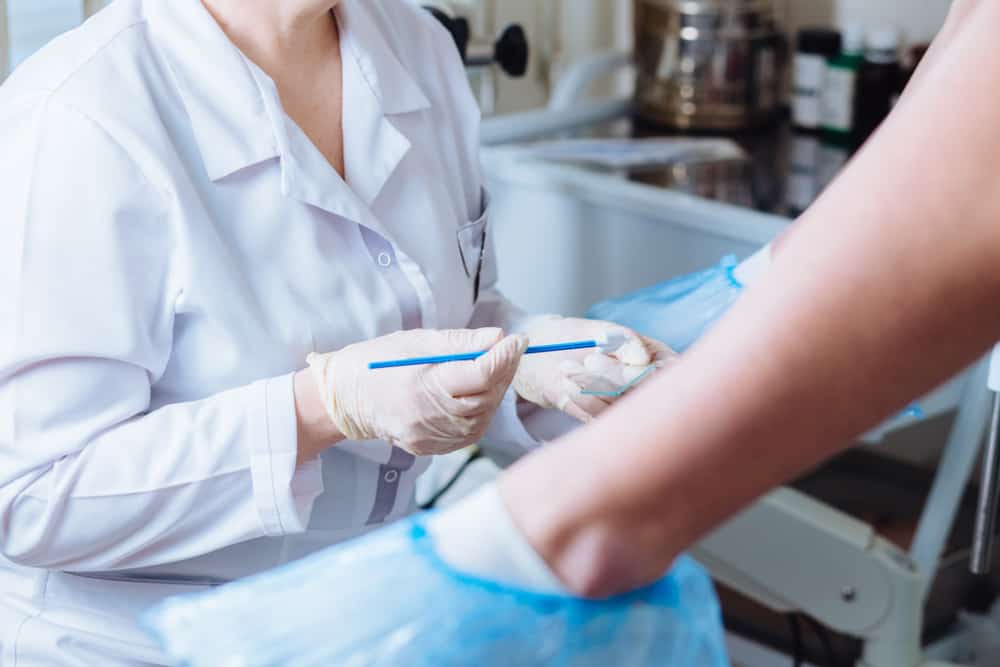A Pap smear is a medical test to check for abnormalities in the woman’s cervix, the lower part of the uterus that sits on top of the vagina. Despite being a quick and straightforward procedure, women sometimes hesitate about setting a schedule for this exam. Here’s what what to expect during your first Pap smear.

Cervical Cancer: All You Need to Know
Pap smear, defined
During a routine pelvic exam, your doctor may perform a Pap smear. In this screening procedure, the doctor takes a sample of your cervical cells to check for abnormalities that may indicate cervical cancer.
According to the Department of Health (DOH), a woman’s first Pap test should happen 3 years after her first sexual intercourse. After that, it should be done yearly for the next 3 years. If results come back negative for 3 consecutive years, then the woman may repeat the test once every 2 to 3 years. For women who never engaged in sex, Pap test can be done at the age of 35.
What to Expect During a Vaginal Exam
In some reports, women must have a Pap test once they turn 21, and then every 3 years if the result comes back negative. At the age of 30, women can have a Pap test once every 5 years if the smear comes with HPV testing.
During your gynecologic exam, the doctor will tell you the frequency by which you need to undergo a Pap smear.
What to expect during your first pap smear
Some women may feel a little scared or shy during their first Pap test; thankfully, it usually doesn’t hurt, and the procedure only takes a couple of minutes. Here’s what to expect during your first pap smear:
There’s no “special” preparation for the test
You don’t need to prepare anything for a Pap test, but medical experts have the following recommendations:
- Try to schedule the exam on the day when you don’t have your menstrual period. This makes the test easier for you and the doctor. However, if it’s unavoidable, testing while you have menstruation is also doable.
- Avoid sexual intercourse or inserting anything in your vagina (even medications) at least 48 hours before the test. Doing these things within 2 days before the exam may affect results; either they wash away or obscure abnormal cells.
- Wear clothes that you can remove easily, as you’ll surely have to undress from the waist down. Sometimes, you’ll have to remove all your clothes, especially if your test includes a breast or abdominal exam.
You can make the most of the consultation
What can you expect during your first Pap smear?
Well, before the exam, you will most likely have a consultation with the doctor. To make the most out of it, answer their questions in detail.
It’ll also be helpful for you to prepare any questions you might have about your sexual health. Prepare your questions about symptoms you might be feeling, your menstrual cycle, and pills or contraception.
Finally, please note the first day of your last menstrual period as the doctor will most likely ask you about it.
The doctor will use a speculum to “widen” your vagina
After undressing, you will lie down on the examination table, bend your knees and place your legs on the stirrups for support.
The doctor will then insert a speculum into your vagina. It’s an instrument that spreads your vaginal walls apart so that your cervix is more accessible. Inserting the speculum might feel a little uncomfortable, but typically, it doesn’t hurt-you’ll just feel some pressure. To promote comfort, the doctor will lubricate the instrument and ask you to relax.

Taking cervical cell samples is quickly over
Once the speculum is in place, the doctor will collect cervical cells using a spatula (scraping instrument) or soft-bristled brush. The sensation may be a little strange, but like speculum insertion, it doesn’t hurt.
After collecting the sample and removing the speculum, that’s it; you’ve completed your first Pap smear. The doctor will give you time to clean up and dress, and then you can talk about when you can expect the results.
Once you leave the clinic, you can go on your day as usual. If you experience pain, let your physician know right away, because it’s not a common occurrence.
Learn more about Screening and Tests for Women here.
[embed-health-tool-ovulation]

























